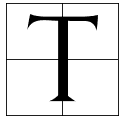

Decimation - The Cruelest Punishment in the Roman Army | History of Yesterday
source link: https://medium.com/history-of-yesterday/decimation-2ca074812341
Go to the source link to view the article. You can view the picture content, updated content and better typesetting reading experience. If the link is broken, please click the button below to view the snapshot at that time.
Responses (9)
You have 2 free member-only stories left this month.
Decimation: the Cruelest Punishment in the Roman Army
Removal of a tenth

 The Roman army was an effective war machine that created one of the largest empires in history. Roman legionaries obeyed their commanders and kept formation during the battle. They were famous for their discipline.
The Roman army was an effective war machine that created one of the largest empires in history. Roman legionaries obeyed their commanders and kept formation during the battle. They were famous for their discipline.
But what happened when the legionaries deserted from the battle or disobeyed their commander?
They would be subjected to one of the most brutal punishments in military history.
Decimation meant the execution of every tenth legionary

The biggest advantage of the Roman army was their ability to fight in formation. The Roman legionaries received enough food, standardized equipment, and good training. The discipline and blind obedience were of the utmost importance.
If the legionaries fled the battlefield, there was no way back in the eyes of the Roman senior leadership.
All of the accused men, no matter the army rank or the social status, were divided into groups of ten men. Each of the men was subject to the lottery either by grabbing a stone from the sack or by drawing a straw. The man who grabbed the white stone or drew the shortest straw was killed.
In the Roman army, the phrase ‘to draw the shortest straw’ got a much more serene meaning.
The Roman legionaries often faced death. The death sentence was not terrifying to them. It was the way how the execution was carried out that made the decimation a cruel punishment.
Every tenth legionary was clubbed down by his remaining nine comrades. Imagine that you have to kill a friend with whom you’ve marched for years, shared meals with, and fought side by side.
The lucky ones that survived were expelled from the legion for a couple of days. They had to camp outside of the fort and survive on raw barley.
Decimation was used only on rare occasions

The Romans rarely used decimation since it meant the loss of experienced soldiers. Thus, we have only a few recorded cases of decimation in the Roman army.
Roman general Crassus ordered decimation after the defeat by Spartacus in 71 BC.
Julius Caesar threatened to decimate his ninth legion during the Roman Civil War (49–45 BC).
Mark Anthony, after being defeated by Parthians in 36 BC, ordered decimation too.
The most famous case of decimation is the Theban legion. In 286 AD, this Christian legion refused to persecute fellow Christians. Emperor Maximillian ordered decimation but they still refused to obey the emperor. The angry emperor ordered another round of the decimation.
The legion still resisted.
Therefore, the decimations were repeated until the entire legion of 6.600 men was killed. The town in Switzerland was renamed Saint Maurice to honor their commander, Mauritius.
Conclusion
Decimation didn’t disappear with the fall of the Roman Empire. Actually, there are reports of decimation throughout history.
Some examples of decimation after the collapse of the Roman Empire include:
- Italian general Luigi Cadorna against the underperforming Italian troops during World War I (1914–1918).
- Leon Trotsky against the deserters during the Russian Civil War (1917–1923).
- Russian generals as the punishment for the cowardice during the Battle of Stalingrad (1942–1943).

Recommend
About Joyk
Aggregate valuable and interesting links.
Joyk means Joy of geeK